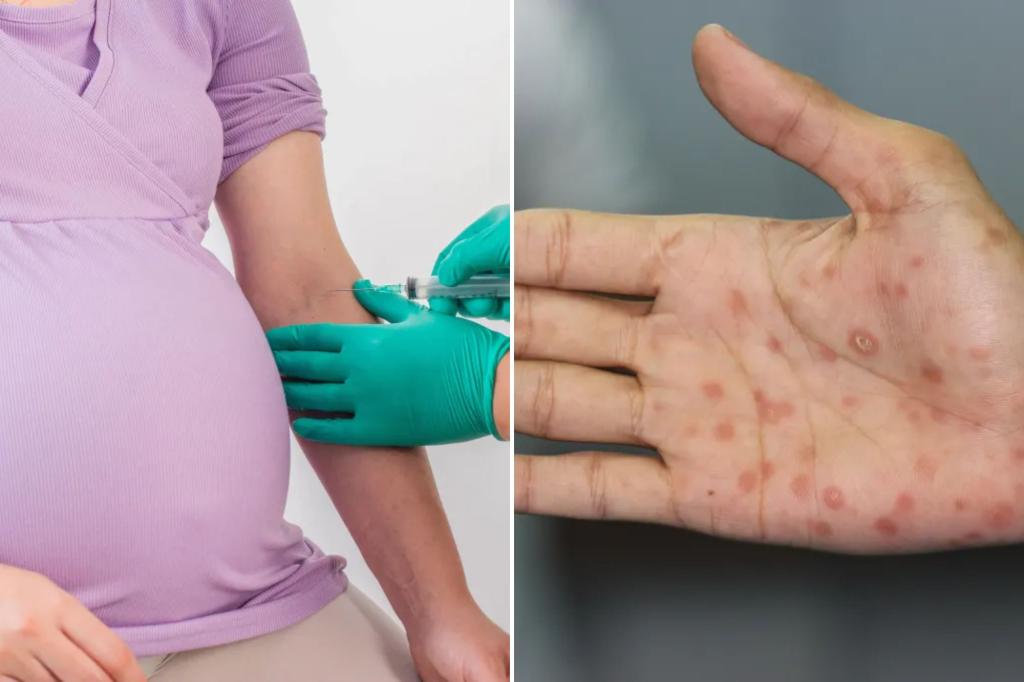Rise in Infant Deaths from Congenital Syphilis Sparks Urgent Health Warnings in New York
At least three infants have succumbed to likely congenital syphilis in New York State this year, elevating concerns among health authorities regarding the dangers associated with this preventable condition.
Congenital syphilis, which occurs when a pregnant woman transmits the sexually transmitted infection to her fetus, can cause severe consequences if not treated. These can include miscarriage, premature delivery, skeletal deformities, neurological disorders, developmental setbacks, stillbirth, or infant mortality shortly after birth.
State health officials noted a "worrisome increase" in congenital syphilis cases in New York this year. "Early identification of syphilis during pregnancy through a straightforward blood test is crucial for prompt treatment, ensuring the health of your baby," remarked State Health Commissioner Dr. James McDonald in a recent statement.
This year, New York has reported a total of 21 congenital syphilis cases outside New York City. The locations of the three infant fatalities have not been disclosed, other than confirming they occurred outside the city.
In the previous year, there were 36 reported cases in the areas outside NYC, with five resulting in stillbirths and one infant death. Between 2019 and 2023, there were eight infant deaths attributed to syphilis within the region.
“The highest incidence rates are observed among Native American, American Indian, Alaska Native, Hispanic, and Black populations,” stated Kristin Wall, an associate professor in epidemiology at Emory University’s Rollins School of Public Health, discussing national trends in congenital syphilis.
She emphasized that barriers to healthcare access play a significant role in the escalating rates within these demographics.
Significantly, New York has seen a troubling rise in infectious syphilis cases among women, contributing to a broader national trend.
Experts suggest that this increase may stem from factors such as reduced condom usage, interruptions in healthcare services due to the COVID-19 pandemic, lack of sexual education, and disparities in access to testing and treatment.
Health officials in New York have identified substance abuse and hepatitis C as notable factors in the state’s congenital syphilis cases.
In response to the growing issue, New York mandated syphilis screening during the third trimester. Pregnant women are now required to undergo testing during their initial prenatal visit, again in the third trimester (between weeks 28 and 32), and at the time of delivery.
Penicillin is typically the prescribed treatment for syphilis, although some individuals may experience allergic reactions, necessitating a desensitization process. However, a recent nationwide shortage of penicillin has exacerbated concerns surrounding syphilis treatment.
Syphilis is transmitted through vaginal, anal, or oral intercourse, with symptoms typically appearing between 10 and 90 days after initial exposure. The first sign is often a painless sore at the entry point of the bacteria Treponema pallidum.
While the sore may resolve on its own within three to six weeks, the infection remains active. Subsequent stages can manifest symptoms such as rashes, fever, fatigue, sore throat, swollen lymph nodes, and hair loss.
Diagnosis generally involves a blood test. The New York health department reminded residents of the availability of at-home testing options for sexually transmitted infections.
If untreated, syphilis can severely impact the brain, heart, and nervous system, potentially leading to blindness, paralysis, or death.

Passionate journalist and digital news editor with a keen eye for global affairs and emerging trends. As the founder and lead writer of RSS News US, he is dedicated to delivering accurate, insightful, and engaging content to readers seeking trustworthy news in a fast-paced world.


